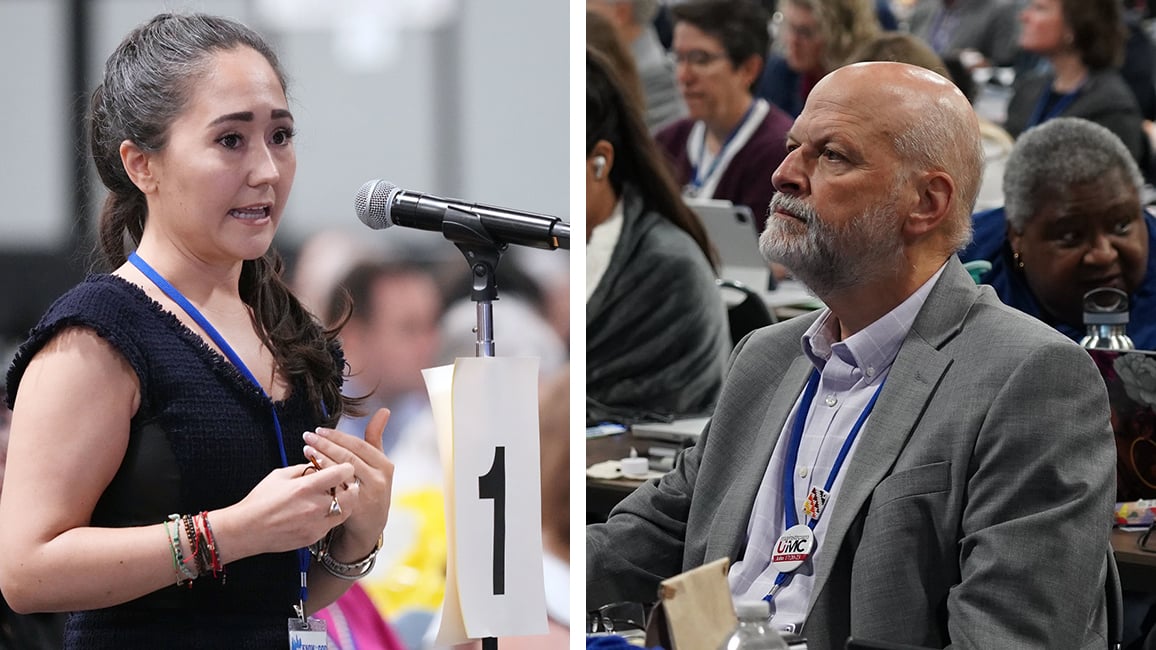New Judicial Council includes Central, North Texas Conference members
Rev. Tim Bruster and Jessica Vittorio elected to serve as clergy, lay alternates
General Conference filled all nine spots on The United Methodist Church’s Judicial Council during elections held May 1, as well as elected six lay and six clergy alternate members.
Among those elected were two names from the Texas delegations: Rev. Tim Bruster of the Central Texas Conference, elected as first clergy alternate, and Jessica Vittorio of the North Texas Conference, who was elected second lay alternate.
Bruster is an Elder and currently serves as the conference’s director of finance and administrative service. This will be his third term serving as a clergy alternate, having first been elected in 2012.
Like the Supreme Court of the United States, the Judicial Council is comprised of nine members. However, it differs in that alternate members are available to serve in the absence of members in order of election and according to lay or clergy status.
“An alternate serves in the same way as a full member and participates in writing drafts of decisions, discussing drafts and the docket items at hand, voting on decisions and, if desired, writing dissertations or concurrences,” Bruster explained. “The term of an alternate is one quadrennium, and it has been my privilege to participate in 82 decisions.”
For Vittorio, this marks her first election to the Judicial Council, and Bruster offered his Texas-area colleague a few words of sage advice.
“Rely on the experienced members of the council for guidance,” Bruster said. “And remember that when you are serving, you are just like a full member of the council, fully participating in the process.”
Vittorio, senior vice president of legal for a publicly traded technology company based in Europe, appreciates the “unprecedented” decisions the Judicial Council has faced in recent years.
“In the midst of the structural chaos which has resulted from COVID delays and disaffiliation, the previous Judicial Council has had to tackle a lot of tough questions about anomalous situations," she said. “Some of those decisions may stand the test of time, but others may not. The most important thing this Judicial Council can do is realign and refocus the judicial decisions of The UMC to be consistent both with our laws, as well as with this new vision of who we will be going forward.”
Both Vittorio and Bruster view the opportunity to serve over the next quadrennium with hope and excitement.
“I hope that this new council will engage in this work with a mindfulness not only towards the immediate impact of the decisions, but also as Bishop David Wilson advised us, with an appreciation and consideration for the impact of the decisions on the next seven generations,” said Vittorio.
Coming out of a historic General Conference, she sees the Judicial Council as vital to living into the connection's shared principles.
“This General Conference has set a tone for who the new UMC will be,” she said. “But ultimately. protecting that tone and establishing the legal basis upon which we will build this new identity will be a crucial function left to the Judicial Council.”
Published: Thursday, May 2, 2024

